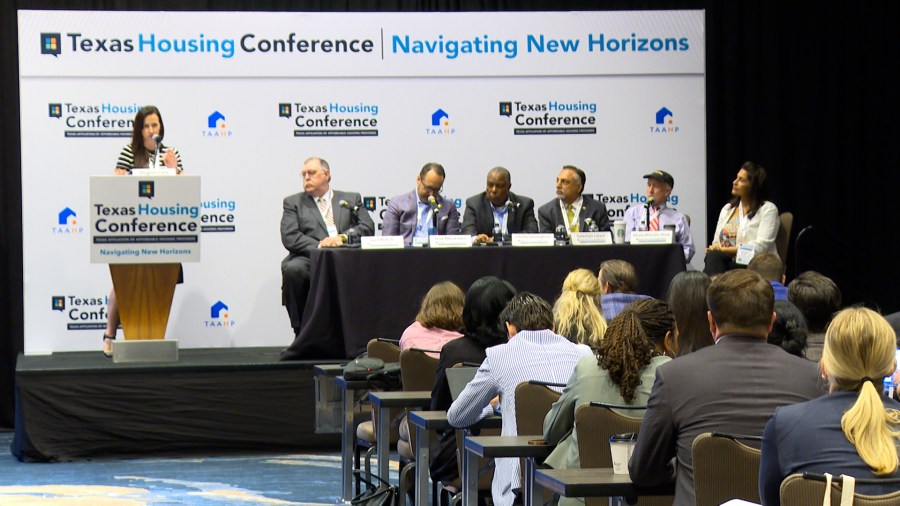Texas Housing Sector Addresses Legislative Shifts as Special Session Kicks Off

Texas Housing Reforms and the Path Forward
Texas lawmakers and representatives from the affordable housing sector recently came together for a panel discussion during a special legislative session. The meeting focused on the implementation of recent housing reforms and their impact on development across the state. This gathering brought attention to the challenges and opportunities presented by these new policies, as well as the ongoing efforts to address the growing demand for affordable housing.
Recent Legislative Changes
During the regular legislative session that concluded in May, several housing-related measures were passed. One of the most significant was HB 21, which reformed the structure of Housing Finance Corporations (HFCs). The law mandates that 50% of property tax savings be passed on to renters through reduced rent. This change aims to ensure that developers do not benefit solely from tax exemptions without providing tangible benefits to tenants.
Senator José Menéndez, D-San Antonio, expressed concerns about the potential impact of these reforms on capital and equity investments in Texas. He noted that some investors are hesitant due to the clawback provisions included in the legislation. However, House Land Resource Management Committee Chairman Gary Gates, R-Richmond, who authored HB 21, emphasized that the measure was designed to address situations where developers failed to pass tax savings to tenants. He cited marketing materials that highlighted property tax exemptions without corresponding rent reductions, suggesting that such practices needed correction.
Senator Paul Bettencourt, R-Houston, clarified that the changes do not include retroactive provisions. “Let me unequivocally tell everybody there is no clawback in reverse on prior tax payments,” he stated.
Housing Supply Measures
In addition to HB 21, the legislature passed several bills aimed at increasing housing supply. Senate Bill 15 reduces minimum lot size requirements for single-family homes in cities with populations over 150,000 in counties with more than 300,000 residents. The measure lowers maximum lot size requirements from typically 5,000-7,500 square feet to 3,000 square feet. This change is intended to encourage more housing development in high-demand areas.
Another key bill, Senate Bill 840, allows the conversion of commercial properties, such as shopping malls and strip centers, into residential or mixed-use developments. This flexibility could help repurpose underutilized spaces and increase housing availability.
House Bill 24 modified a law that allowed property owners to block nearby housing developments. The petition threshold was raised from 20% to 60% of neighboring landowners, making it more difficult for local opposition to halt new projects.
Development Challenges
Despite these legislative efforts, panelists discussed several obstacles to housing development. Local opposition remains a significant challenge, particularly in communities resistant to new construction. Representative Dr. Suleman Lalani, D-Sugar Land, noted that bringing consensus on housing initiatives across Texas’s diverse regions is complex. “Texas is huge, and it is incredibly diverse. It’s diverse not only in people, but it’s diverse in its needs. Diverse in its needs, priorities and its opportunities and urgencies,” Lalani said.
Megan Cano, president of the Texas Affiliation of Affordable Housing Providers and CEO of CHR Partners, emphasized the importance of education in addressing community concerns about affordable housing. She pointed out that affordable housing supports essential workers such as firefighters, police officers, teachers, and retail employees. “Affordable housing in Texas is our firefighters, our police, our teachers, our retail workers and people that we interact with on a daily basis for the basic services that we need in our community,” Cano said.
Future Priorities
Looking ahead to the 2027 legislative session, industry representatives identified potential reforms to the state’s housing programs. These include modifications to the two-mile rule affecting development near existing affordable housing and changes to state representative letter requirements in project scoring.
Cano acknowledged that while the traveling HFC reforms present implementation challenges, they also offer potential benefits. “Does it have its challenges? Absolutely, they all do. I think, you know, not. I don’t think there’s any policy that doesn’t have its plus and minuses, but we are excited to kind of take that to the next level,” she said.
Post a Comment for "Texas Housing Sector Addresses Legislative Shifts as Special Session Kicks Off"
Post a Comment